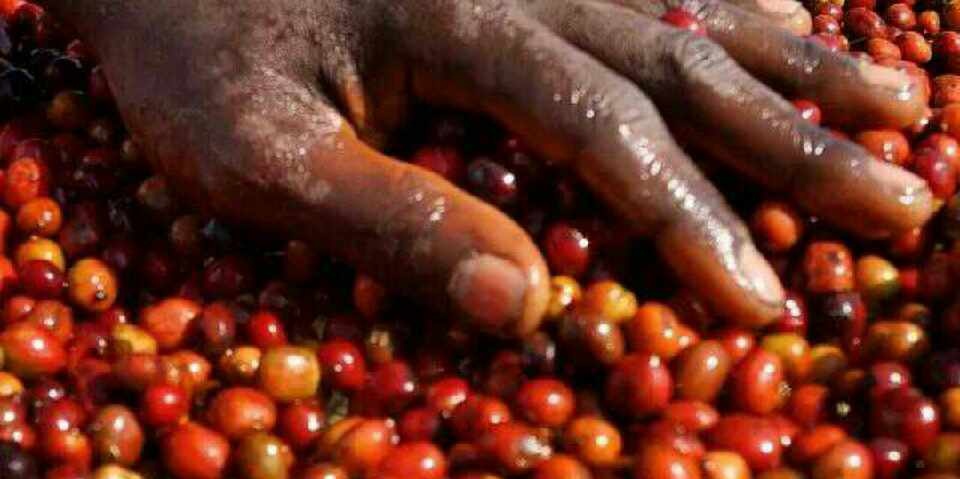Introduction to the characteristics of El Salvador Coffee Flavor Manor producing area
El Salvador's domestic topography is mainly mountainous, plateau, volcanic, known as the "country of volcanoes", the Santa Ana active volcano 2385 meters above sea level, the highest peak in the country; the northern part of the country is the Lompa River Valley, and the southern part is the narrow coastal plain.
Climatic characteristics
El Salvador has a tropical climate with an annual average temperature of 28 ℃; November-April is the dry season, May-October is the rainy season; the coastal and lowland climate is hot and humid, and the mountain climate is cool; the annual precipitation in the mountains is more than 1800 mm, and the coastal zone is about 1000 mm. The Constitution of El Salvador officially entered into force on December 23, 1983. the Constitution expounds the country's political system, presidential election, legislation, exercise of judicial power, and so on. It is specifically stipulated that presidential candidates can be elected if they get more than 50% of the votes in the first round, otherwise, a second round of voting will be held between the top two candidates who get the most votes.
Parliament
The National Assembly of El Salvador has a unicameral system, with a total of 84 members, 64 of whom are based on the population of each province.
San Salvador
San Salvador
Proportional distribution, the remaining 20 regardless of provincial origin, according to the number of votes to determine the term of office of 3 years, can be re-elected. The latest parliament was established in May 2015 and its term of office lasts until April 2018, including 35 seats for the National Republican Union, 31 seats for the Marty Front, 11 seats for the Grand Union of National Unity, 4 seats for the National Reconciliation Party and 3 seats for the other parties. LorenaPe ñ a, speaker of the Marty Front, will serve until November 7, 2016, followed by Guillermo Gallegos, a member of the Grand Union of National Unity, who will serve as speaker until April 2018.
Salvadoran coffee ranks side by side with Mexico and Guatemala as the producers of Asa and Merdo, and is fighting for the top one or two places in China and the United States with other countries. The highlands of origin are large coffee beans of all sizes, which are fragrant and mild in taste. Like Guatemala and Costa Rica, coffee in El Salvador is graded according to altitude. The higher the altitude, the better the coffee. It is divided into three grades according to elevation: SHB (strictly high grown) = highlands, HEC (high grown central) = mid-highlands, and CS (central standard) = lowlands. The best brand is Pipil, the Aztec-Mayan name for coffee, which has been recognized by the American Organic Certification Society (Organic Certified lnstitut eof America) that Salvadoran coffee is a specialty of Central America, where it is light, aromatic, pure and slightly sour. Like Guatemala and Costa Rica, coffee in El Salvador is graded according to altitude, and the higher the altitude, the better the coffee. The best brand is Pipil, which is what the Azbec-Mayan (AztecMayan) called coffee, which has been approved by the American Organic Certification Society (Organic Certified Institute of America). Another rare coffee is Pacamara, a hybrid of Pacas and Maragogype. The best place to produce the coffee is in western El Salvador, adjacent to Santa Ana, which is close to the border with Guatemala. Parkmara coffee is full-grained, when the flavor is not too strong El Salvador (El Salvador) is one of the small countries in Central America, very densely populated. The flavor of its coffee is characterized by excellent balance.
Today, this coffee accounts for 40% of the country's exports. 35% of the extra hard beans of the best coffee are exported to Germany from January to March.
In the early 1990s, guerrilla warfare greatly damaged the country's national economy, reducing coffee production from 3.5 million bags in the early 1970s to 2.5 million bags in 1990-1991. The eastern part of the country was most affected by guerrilla warfare, and many farmers and workers were forced to leave the manor. The shortage of funds has led to a sharp drop in coffee production, from 1200 kg per hectare in the past to less than 900kg per hectare today. In addition, the government imposed an additional 15% tariff on exported coffee in 1986, that is, an additional 15% in addition to the existing 30% tax. Taxes, together with unfavorable exchange rates, have greatly reduced the export of coffee and the quality of coffee.
The government finally realized the great role of coffee in the national economy, such as solving employment, earning foreign exchange and developing agriculture, so it privatized part of the coffee export industry in 1990, hoping to increase the income rate of coffee in the export market.

Important Notice :
前街咖啡 FrontStreet Coffee has moved to new addredd:
FrontStreet Coffee Address: 315,Donghua East Road,GuangZhou
Tel:020 38364473
- Prev

Light fragrance, low-key and elegant Colombian coffee varieties, taste, manor boutique coffee bean flavor introduction
Colombian coffee (Cafe de Colombia), which originated in Colombia, is one of the few individual coffees sold in the world under the name of the country. In terms of quality, it has won praise unmatched by other coffee. Compared with other producing countries, Colombia is more concerned with developing products and promoting production. It is this, coupled with its superior geographical and climatic conditions, that makes Columbus
- Next

Variety characteristics of Hawaiian coffee with attractive nutty flavor introduction to the flavor of boutique coffee beans in manor
Kona coffee beans from Hawaii have the perfect appearance, and their fruit is extremely full and shiny. The taste of coffee is rich and aromatic, with cinnamon flavor, and the acidity is well balanced. Hawaiian coffee is the only top variety produced in 50 states in the United States, and the native United States is naturally the largest market.
Related
- Detailed explanation of Jadeite planting Land in Panamanian Jadeite Manor introduction to the grading system of Jadeite competitive bidding, Red bid, Green bid and Rose Summer
- Story of Coffee planting in Brenka region of Costa Rica Stonehenge Manor anaerobic heavy honey treatment of flavor mouth
- What's on the barrel of Blue Mountain Coffee beans?
- Can American coffee also pull flowers? How to use hot American style to pull out a good-looking pattern?
- Can you make a cold extract with coffee beans? What is the right proportion for cold-extracted coffee formula?
- Indonesian PWN Gold Mandrine Coffee Origin Features Flavor How to Chong? Mandolin coffee is American.
- A brief introduction to the flavor characteristics of Brazilian yellow bourbon coffee beans
- What is the effect of different water quality on the flavor of cold-extracted coffee? What kind of water is best for brewing coffee?
- Why do you think of Rose Summer whenever you mention Panamanian coffee?
- Introduction to the characteristics of authentic blue mountain coffee bean producing areas? What is the CIB Coffee Authority in Jamaica?

